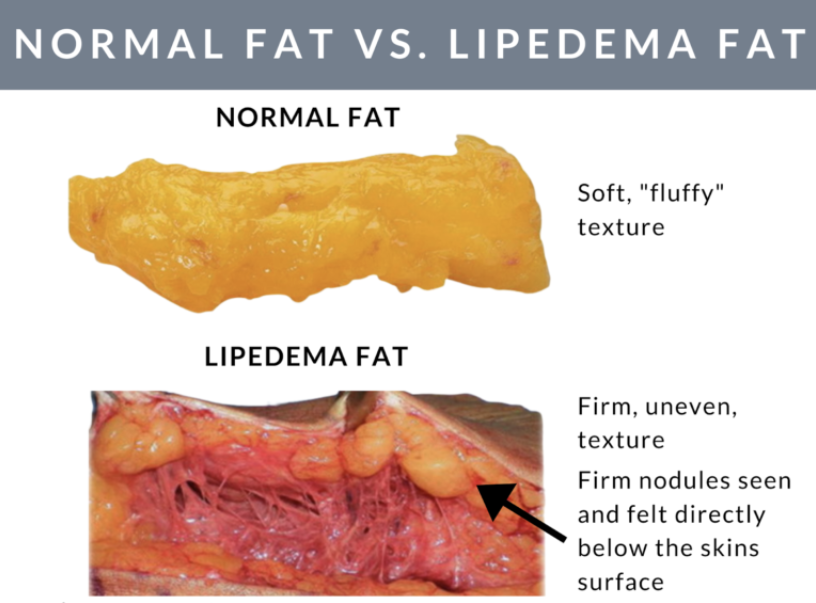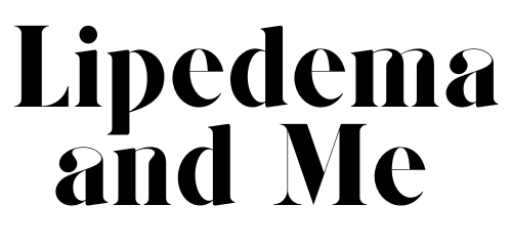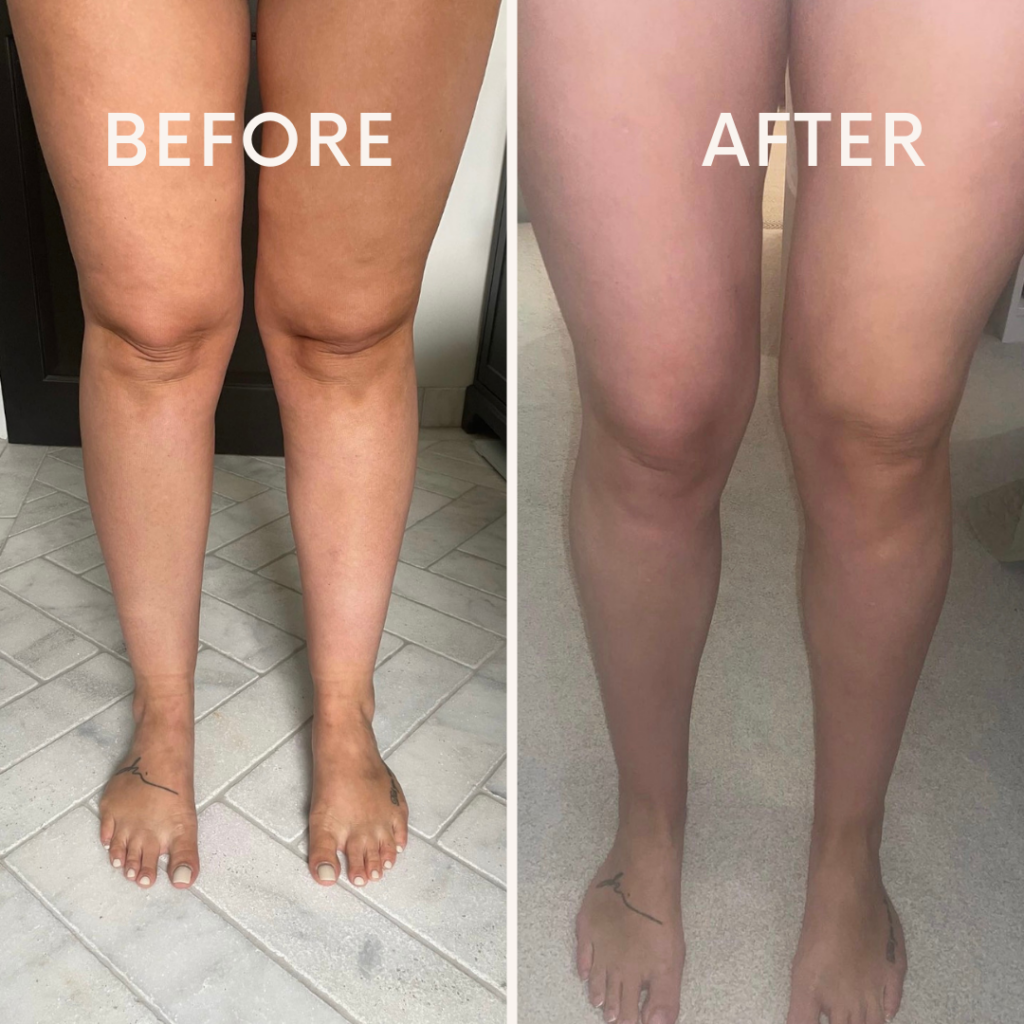You need to weigh up the pros and cons before going ahead with any surgery. There’s always a risk associated with being put under anaesthetic. But if it can improve your health and quality of life then surely it’s worth it?
Why Lipedema Can’t be Cured
As you might already be aware, Lipedema can’t be cured. There’s various things you can do to slow the progression and ease your symptoms, see my blog Can Lipedema be cured? for more details. But ultimately, nothing is going to make it disappear completely apart from surgical intervention.
This is due to the fact that Lipedema fat has a different constitution to normal fat and can’t be reduced with diet or exercise. Therefore, a special type of liposuction is recommended to remove diseased Lipedema fat.

What is WAL Liposuction?
WAL liposuction, or water-assisted liposuction, uses a fan-shaped jet of water to gently remove the pathologic fat cells which cause Lipedema patients so much trouble. This can produce less bruising and quicker healing than other types of liposuction used to remove normal fat.
Before I discovered Lipedema last year, I was always of the opinion that liposuction is just a procedure that is used to remove fat for people who either can’t exercise, or can’t be bothered to exercise. Harsh I know, and how wrong was I?
WAL is used to remove diseased Lipedema fat from women who physically can’t remove it themselves. Trust me, if Lipedema fat could be melted away with a healthy diet and regular exercise, there’s no way I’d suffer from it. But it’s not that simple.
Slowing the Progression
Following an anti-inflammatory diet for Lipedema and maintaining a healthy weight can slow the progression, but in all honesty it’s unlikely that it’ll make your Lipedema go away completely. And the worst thing for me was the realisation that Lipedema is a progressive condition that will only get worse over time.
When I first got my stage 2 Lipedema diagnosis in December 2022, I was adamant that if I went down the surgery route I’d never consider having it done anywhere apart from the UK. Too dangerous. Too many risks. Not good aftercare.
I started researching Lipedema surgeons in the UK and I was so shocked at the lack of options and how expensive it was. At first, I wondered if I might be able to get it done on the NHS but I quickly realised that wasn’t going to be an option for me.
Finding my Surgeon
During one of my many nights scouring the internet for answers. I came across a wonderful charity called Lipoedema UK. They had a page on their website with recommended surgeons specialising in Lipedema treatments. That’s where I came across Lipemedical in Madrid. I saw they had an Instagram page and I checked it out right away.
I was amazed with what I found. The Lipedema before and afters were quite literally breath taking. There was hope, I couldn’t believe it. Not only that but their page was really informative about the condition, it helped me so much at the start of my Lipedema journey.
I spent a few weeks keeping an eye on their profile until I finally plucked up the courage to reach out to them. This was all very new to me and I didn’t really know where to start. The Lipemedical team were so incredibly helpful and friendly, they instantly put me at ease.
Even before my video consultation with Lipemedical, I’d pretty much decided that this was the surgeon I wanted to go with. I’d reached out to so many women who’d used Lipemedical already and I couldn’t find one that had anything negative to say.
Sharing My Lipedema Journey
I’ll be sharing my journey with Lipemedical from start to finish. From my initial consultation to where I am now waiting for my first surgery. I realise that surgery might not be an option for all women with Lipedema, but after copious amounts of research I’ve decided it’s the right option for me. Send me an email sharing your Lipedema liposuction stories to so****@***********me.com or comment below.
Disclaimer: My blogs talk about Lipedema, diet, surgery and much more. I’m talking from my point of view to help women, and remind them they are not alone. I am not a medical professional, so the content above is from my own perspective with research I have done into the topic. It’s not meant as medical advice, you should always consult your doctor or a specialist for both your diagnosis, and a treatment plan.
You may also be interested in:
- Conservative vs Surgical Treatments for Lipedema
- Lipedema Surgery Cost
- Lipedema Reduction Surgery with Lipemedical


